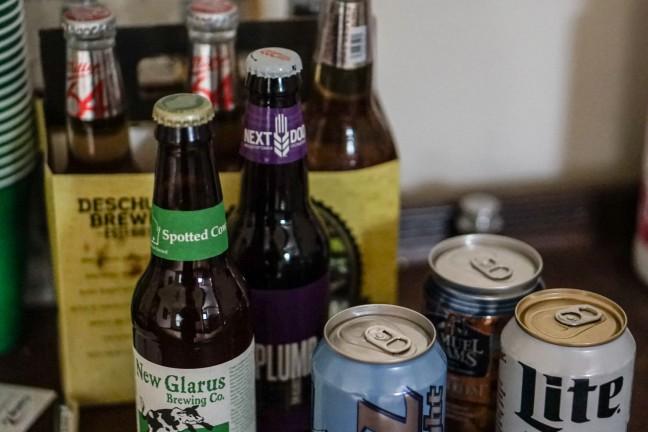Associated Students of Madison listened to a presentation on the impact the University of Wisconsin’s drinking culture on students of color Wednesday.
University Health Services alcohol and drug prevention coordinator Reonda Washington focused on a spring 2016 survey, The Color of Drinking, which looked into the impacts of attending a predominantly white school with such a prominent drinking culture.
Students that do not identify as white were asked to participate in this survey. Four hundred and forty five participants responded to 24 questions asking students about their experience with alcohol on campus.
“90.2 percent of students in the survey identified our drinking culture as negative, saying it was pervasive and excessive,” Washington said. “Many students felt that the campus motto was ‘drink or get out.'”
According the study, students of color have the highest percentages of nondrinkers on campus, yet they experience the most problematic consequences of their peers’s alcohol use, Washington said. This affects not only their academics, but their overall campus experience.
Half of these students said they purposefully avoid areas such as Langdon Street and State Street in order to escape harassment from members of fraternities and sororities, Washington said.
One student said in the survey they felt judged for their choice not to drink.
“I am already a minority, but now it has made me a minority of a minority,” the student said. “I have often been partially judged because I don’t drink, and apparently I am less of a man because I don’t drink.”
Students also said they avoid these areas because intoxicated people can be rude and they don’t want to get involved in an argument with someone who is drunk, Washington said.
Many students have experienced racism from an intoxicated student. One specific incident occurred during Mifflin’s notorious party weekend, another student said in the survey.
“Three white males were already drinking and passed out in my dorm while I was doing laundry,” the student said. “They made a comment that that was all I was good for.”
Washington and her team analyzed #theRealUW tweets during protests about campus climate last spring and plan to address the issues they brought forth in the next survey. One in five of #theRealUW tweets discussed the role of alcohol in racial tensions, Washington said.
Washington said she and her team plan to conduct this survey again with more students this upcoming spring.
The survey was not meant to educate or warn students of color about their personal alcohol consumption, but rather to provide a safe space where students of color can share their experiences and support each other, Washington said.
“Alcohol does not excuse any behavior when people are drunk,” Washington said. “How do we show this isn’t acceptable? These are the questions we need to be focusing on.”


